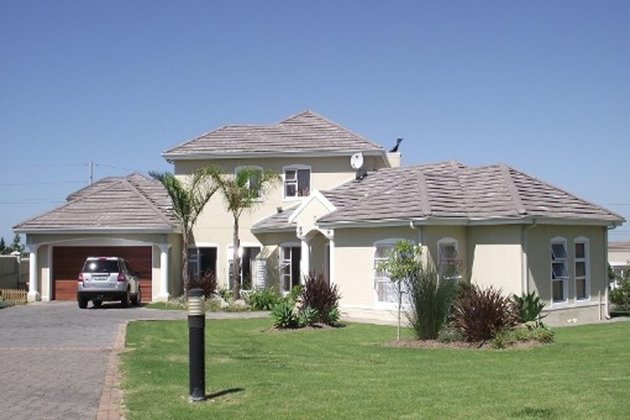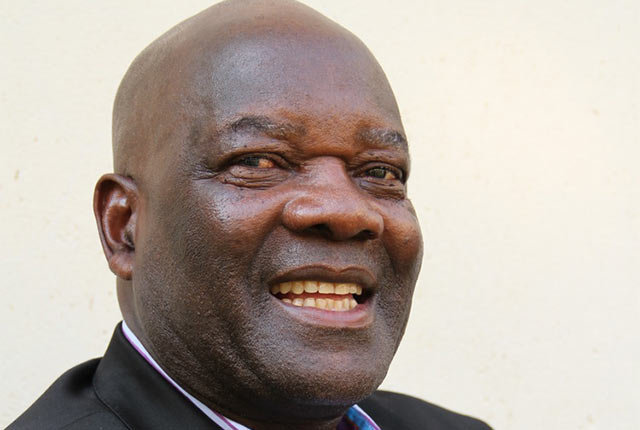Hukama: Preserving the ties that bind us


Imposing houses in the low-density suburbs are beautiful, but they are not welcoming to poor relatives
Dr Sekai Nzenza On Wednesday
BACK in the village, we used to live as one big extended family connected together by hukama, family relationships. Our behaviour or magariro edu, pahukama, was guided by hunhu, humanness and spiritual obedience to the ancestors and to God.
We were all related by blood, marriage or totem. Words like cousin, aunt, half-sister or stepsister did not exist. Perhaps this was due to our lack of English at that time. But calling someone stepsister immediately created a distance between us. Your uncle´s son was your brother and not cousin. Your father´s daughter was your sister and not stepsister.
In those days, long before independence, some relatives who came to the city to look for jobs often lived with other relatives, even if this meant four or more people were sharing one room. There was always space for hama, the relative.
When the liberation war started, my mother sent us three siblings to Salisbury where we slept on the lounge room floor while my brother Charles had one bedroom to himself and another relative was renting the second bedroom. He shared that room with three other relatives.
After independence, my sister Charity finished university and got married to a handsome man from Gutu. He had just returned from many years living in Ireland and supporting the liberation struggle. He bought a big, beautiful house in Greendale, a suburb that used to belong to whites only during Rhodesia. Like other affluent suburbs, Greendale was no longer segregated. You could live next door to white people and African children were also allowed to go to schools that once were for Europeans only.
I recall travelling from Glen Norah B flats with my mother and sister Paida, on a visit to Charity and her husband in Greendale. The house had four huge bedrooms, two ensuite, three bathrooms and five toilets.
The backyard and front yard could easily measure up to a school soccer field.
They had a swimming pool and a garage big enough for two cars. At the back of the house, my mother commented that there was enough space to grow maize, tomatoes and rape. My mother ululated and thanked the ancestors for such a huge house. Our brother-in-law, Babamukuru, said we were all welcome to live in this house.
There was no need for us to huddle together on the floor in Glen Norah B anymore. Before she returned to the village, my mother thanked Babamukuru and said such a big house would be so lonely with only two people. It needed hama.
We also knew that my mother was praying for a child to bless the marriage. One child came later. But the house was still too big for Babamukuru, three of us sisters and a child.
Two of Babamukuru´s relatives from Gutu then came to stay as well. We cooked a big pot of sadza and another one of meat mixed with vegetables every day. At night we all sat in the lounge and watched television.
During Winter, Babamukuru said we could light up the fire in the lounge. At that time, we had never seen a fire inside a modern house nor were we familiar with chimneys. It felt like the village. In those days, we did not worry too much about the cost of water, electricity or the price of meat. Zimbabwe was the breadbasket of Southern Africa. We were one big family joined together by hukama, relationships.
But times have since changed. Our move to the city is slowly eroding hukama. My cousin Mainini Alice, a teacher in Kwekwe, spoke about this erosion of family relationships during a baby shower for her daughter Yeukai at my place last December.
I had met Yeukai once, when she was a young primary school girl many years ago. I did not meet her again until she had already graduated from university, married and expecting a first child. In honour of Mainini Alice, I said I would host Yeukai and her women friends at my place because there is enough room for people to sit outside, talk, drink, roast meat, dance and simply enjoy being together to celebrate the coming of a new baby.
We had more than 30 women of mature age. There was much fun and celebration including jokes that you would never tell in front of men. Zvinonyadzisira zvega. Zvisingatauriki. When it was time for speeches, Mainini Alice, dressed in her blue costume with glittering silver buttons addressed me as “mwanangu” meaning my child. She takes the mother role to me, because she is my mother´s niece. With misty eyes, like she was about to cry with joy, Mainini said, “Mwanangu, kune dzimwe mhuri, Yeukai atove kure chaizvo pahukama hwedu. Asi wataridza hukama wakadzika. Mazuva ano, hatichakoshesi hukama zvataiita kare.” By this she meant that in other family relationships, Yeukai as my cousin´s daughter, was already a very distant blood relative.
All the women clapped. Someone, a friend of Yeukai, said these days we only respect hukama, when someone dies. We see ourselves getting ready to go and spend a night at a distant relative´s place because that is our way of washing away the guilt of not caring for each other enough.
Another lady who spoke only in English said our family relationships have been breaking down ever since we left the village. The economy does not make it easier for us to host a relative for too long, especially one who is coming to the city to look for employment.
Then my cousin Piri stood up and said that our rejection of relatives was caused by big houses which were really meant for white people only. We copied the lifestyle of Europeans in the way we eat, dress, speak and treat relatives. “Some of you ladies do not like relatives who do not know how to flush the toilet. Is that not correct?” There was an uproar of laughter.
Given the platform, Piri was unstoppable. She said in the village, it was easy to work in the fields together, eat together and basically share the same spaces, even sleeping on the mat with other girls while boys did the same. We went to the river and bathed together sharing stories.
“Mazidzimba ekusabhabhu akanaka, mahombe asi haadi hama dzisina mari!” said Piri. The big houses in the low density suburbs are beautiful but they are not welcoming to poor relatives.
A very tall girl wearing skinny jeans and revealing a huge cleavage with a small rose tattoo on the left breast stood up and said, “I cannot afford to host the whole village in my place. I have only one bedroom for a visiting relative. When he or she arrives, they must tell me how long they are staying so I know how to budget for food. Soon as a relative comes, I lay down the rules. I will not put up with rural people with poor hygiene in my house. No thank you. Besides, I need my quiet times and my space.”
“Space? What space? One day your children will leave home, go and study in the Diaspora and never come back. Then you will be very lonely without relatives. You will beg poor relatives from Highfield to give you company when you get old. Space also means away from suburban loneliness,” Piri shouted back and others joined in.
There were no real answers or closure to the discussion. My nephew´s wife from Honde Valley then asked for the platform to speak. She said the Manyika people still valued hukama much more than the Zezuru. Money and a big house might be nice, but it will never give us the warmth that comes from reclaiming hukama or family relationships that are slowly being eroded due to urbanisation, a changing economy and adoption of different values. We applauded her for the speech.
After the baby shower, Piri said she was feeling guilty about relatives she had not seen for many years. “It is not good that we flock to the funeral and line up to view the body of a relative we have not called or visited at all when he was alive,” she said. As if answering herself, she continued, “But, pane problem pakutsvaga hama apa. Unotsvaga hama kana uine mari yekupa hama dzacho, Sis. Magariro edu anoti pasina mari hapana hukama.” There is a problem in looking or chasing after relatives. You can only do so, when there is money to be shared around in the spirit of hukama.
But, shall our tradition of hukama continue to be eroded and lost, because there is not enough money or enough rooms to share with our relatives?
My grandmother, Mbuya VaMandirowesa always said, “Siya pehukama.” By this, she meant that when confronted with hardships or when we are troubled by a person or a situation, we should always try to leave room for the rebuilding of family relationships. Even though the economy can be hard or there is not enough food to pass around, surely there must be space for family. Ngatisiye pehukama.
Dr Sekai Nzenza is a writer and cultural critic.










Comments